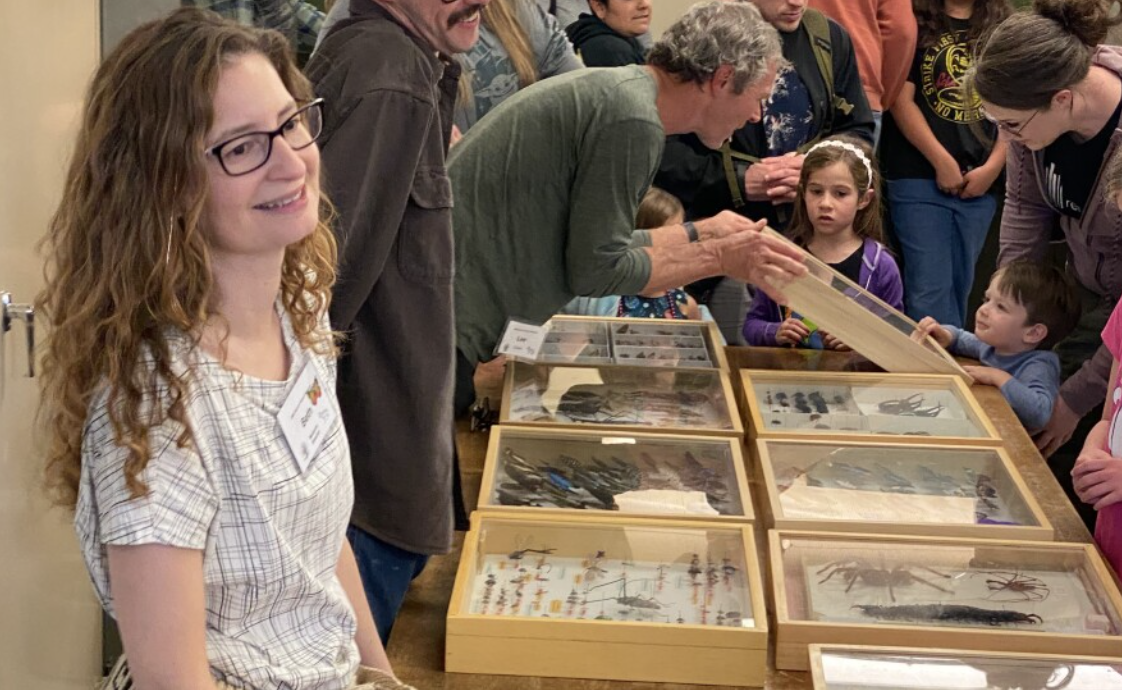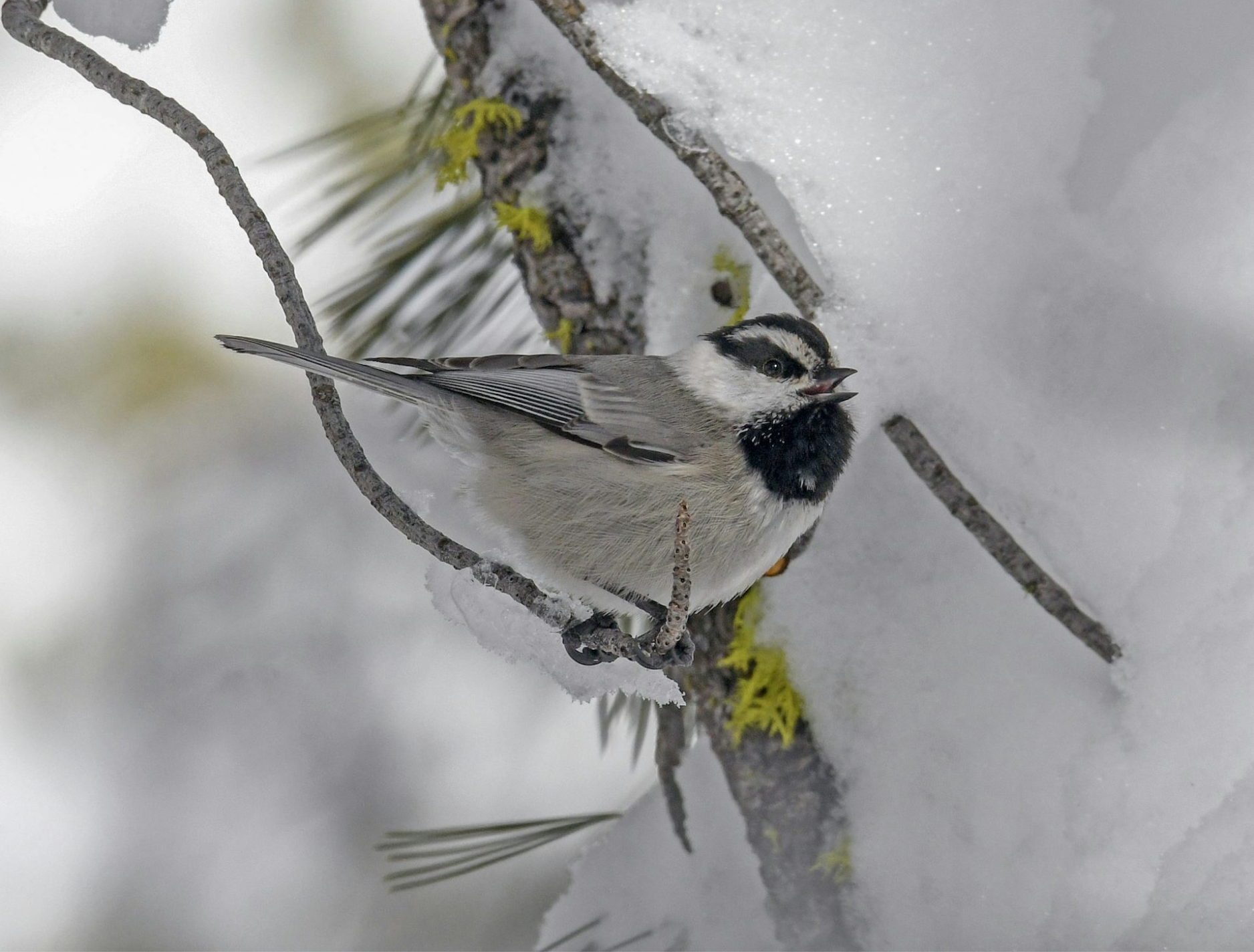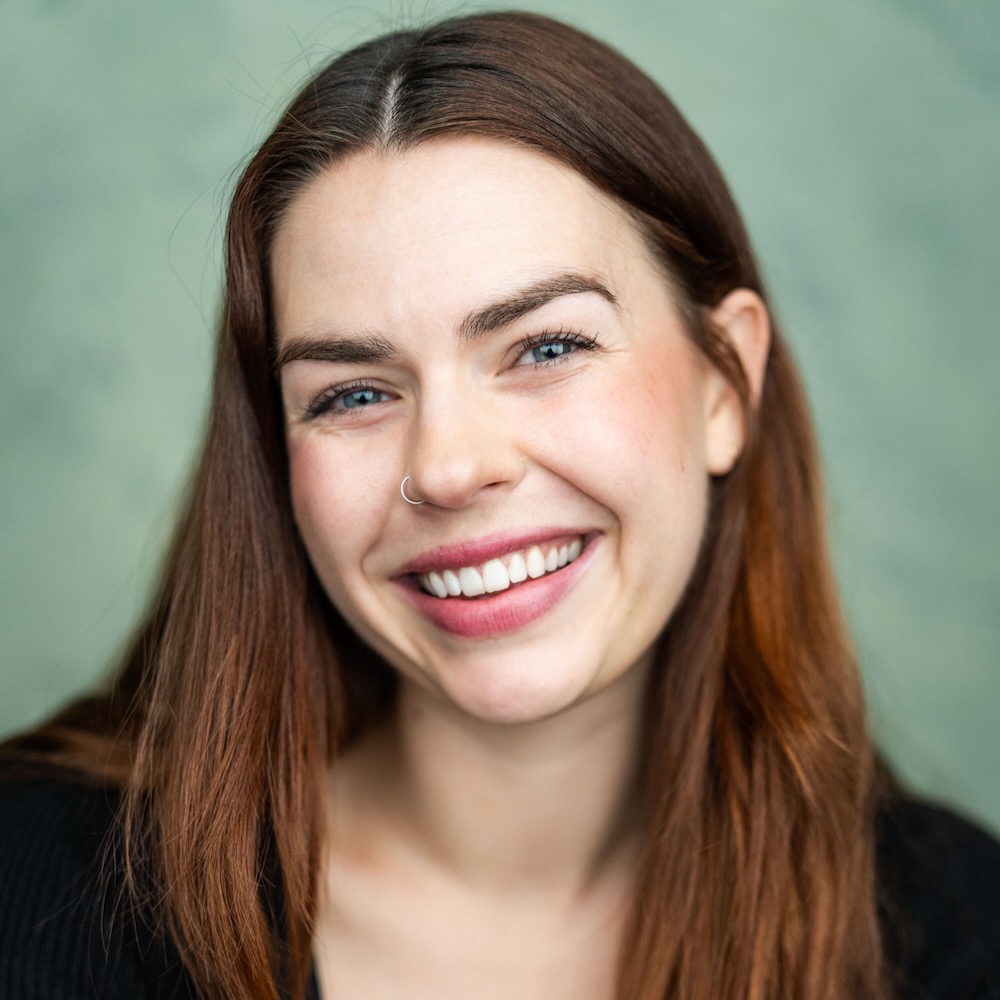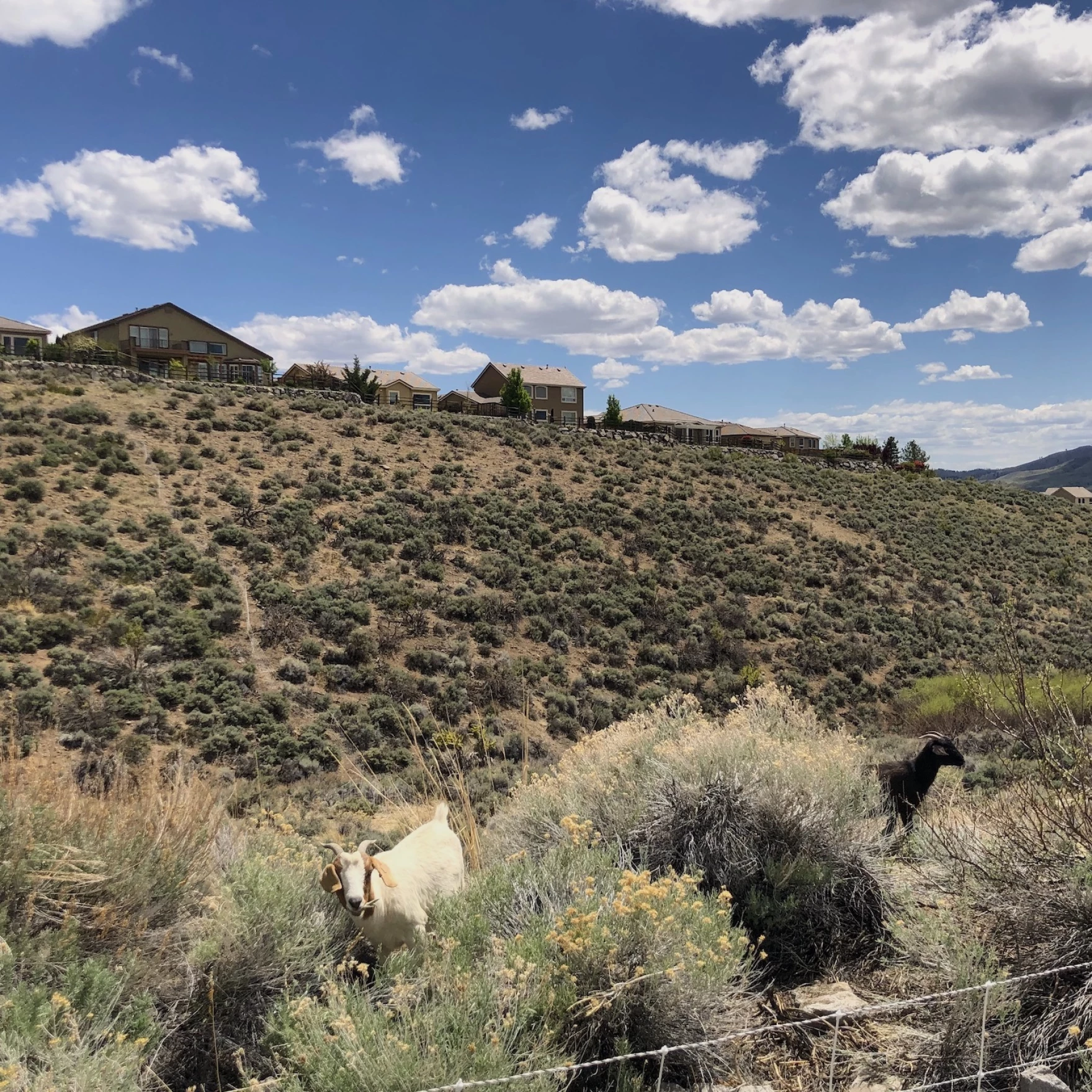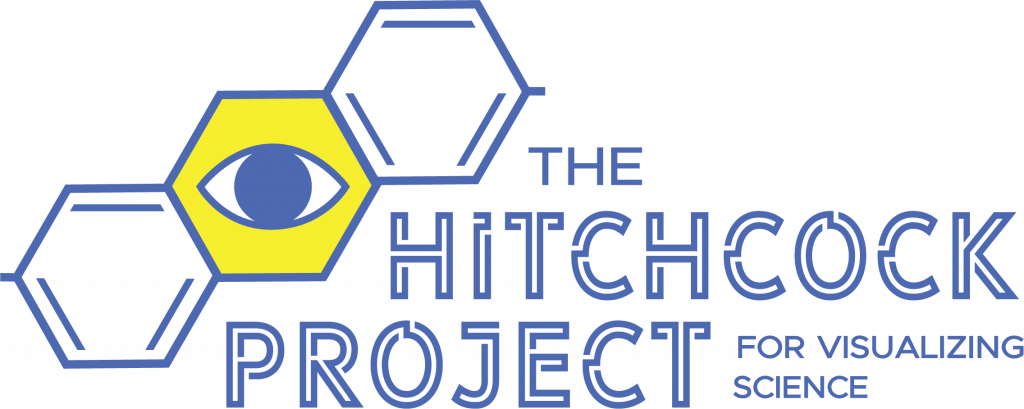Above: Dr. Beth Leger (left) stands behind a table at an outreach event at the Museum of Natural History at the University of Nevada, Reno. Credit: Beth Leger.
This story was shared with permission from KUNR Public Radio. For an audio version of the story, please visit the KUNR website.
Federal funding cuts affected science departments at UNR, and professors have concerns over the future of their work.
Dr. Beth Leger enjoyed her morning outside a local coffee shop. The warm smell of roasted beans circled the cars and songbirds passing by. The sun beamed, catching the hints of sparkly tinsel in her hair.
Leger is a biology professor and director of the Museum of Natural History at the University of Nevada, Reno. Although science is her background, her passion is her students.
“Every time I wake up in the morning, I think about what I should do that day,” Leger said. “If my time is going towards a student, it means I’m doing the right thing.”
The “right thing” became a little more difficult this semester when federal budget cuts slashed university funding.
Leger said one of the biggest challenges she has faced so far was the commitment to new people and new projects in her department.
“I have undergrads who would like to get hired. I’m holding them off. We have seasonal workers who want to get hired. I’m holding off. There’s a lot of young people, quite frankly, who are ready to start their careers and ready to go forward, and there are real impacts in our planning,” she said.
For many scientists and researchers, their careers blossom at a university. Leger said university science funding can help students land on-campus jobs, gain experience and get references, leading to important work in science fields.
“They really, really take their education and they multiply it into benefits for the whole nation,” Leger said. “So, every dollar we put into a student is a dollar going in the right place.”
One of Leger’s projects is a state seed bank, which would preserve native seeds across the Great Basin. Some states have had seed banks for over 50 years, so Leger wants Nevada to preserve its flora as well. Because of cuts, though, the equipment purchased for this project could go unused.
“We are totally staffed up and we’re raring to go, and pulling the plug on something like that is devastating. This equipment is nothing without humans to run it, and we need these federal funds to keep this project going,” Leger said.
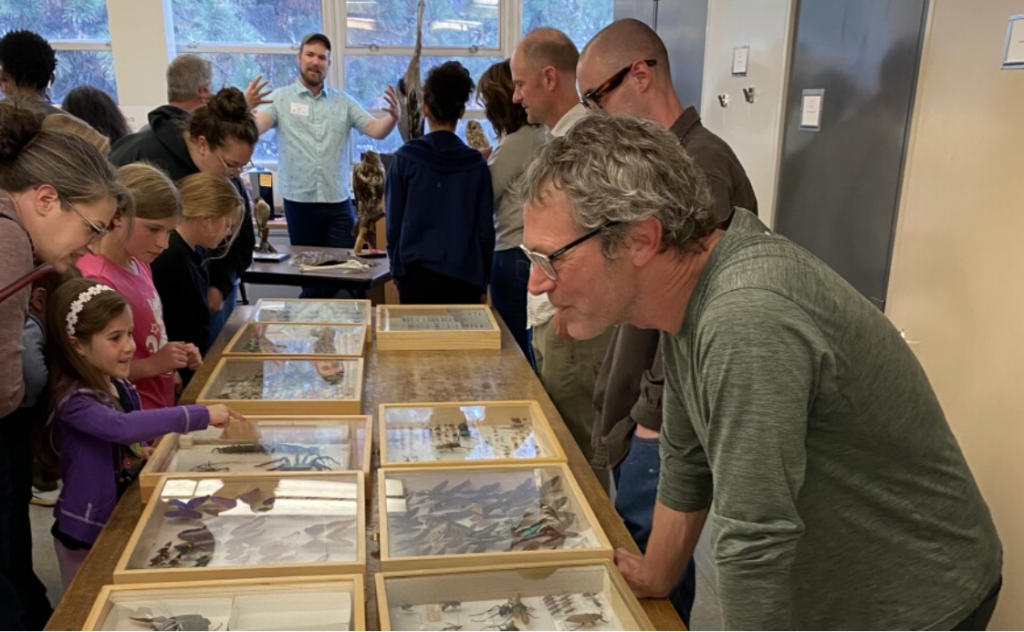
The Museum of Natural History contains irreplaceable specimens from around the world. The samples, from colorful fish to vibrant butterflies, were collected through federally funded research. This is where Dr. Lee Dyer spends his time on campus when he’s not in the classroom teaching ecology, evolution and conservation biology.
He said that most university scientists are awarded grants through funders like the National Institutes of Health, the Department of Defense and the National Science Foundation. This once-secure funding, though, is now up in the air.
“They’ve cut 10% of the staff at the National Science Foundation,” Dyer said. “So that means that the process of funding will be slowed down. It’s likely that they will not be able to fund most of the grants that have been submitted recently.”
The cuts are felt at UNR but extend far beyond Nevada. Dyer said he lost a grant that studied fire ecology and climate change in Ecuador.
“I had a former PhD student who got his PhD here at UNR who’s Ecuadorian, and he lives in Ecuador, and it was supporting him. It was supporting some field technicians in Ecuador, and then it was supporting graduate students here,” Dyer said.
Like Leger, Dyer worries about his students. One way to help was to meet with UNR faculty and students to talk about the current state of science research.
“There are some grad students who are trans, who are very, very scared right now, and it got kind of emotional, but it was really good for the group to be able to get together and talk and help each other out,” Dyer said.
Both Leger and Dyer said that fostering community and speaking to local politicians are the best ways to ensure science research can continue.
Ali Dickson is the 2025 spring intern for KUNR and the Hitchcock Project for Visualizing Science. She is a student in the master’s program at the Reynolds School of Journalism.

